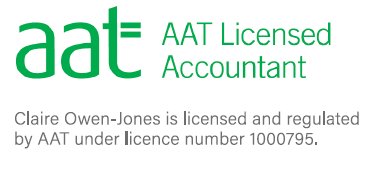There's an old business saying which is "what you can measure, you can manage". This is completely true of course but it's kind of unhelpful as ultimately you can measure pretty much everything in your business. So once you get a good bookkeeping system in place giving you accurate information every month, or even week, the temptation is to want to monitor everything.
KPIs are a lovely accountancy buzz word. It stands for Key Performance Indicator. A KPI is effectively anything within your business that you can measure; whether this is finance related such as gross profit margin or non-finance related, such as customer satisfaction scores. So, as you can appreciate, there are literally billions of KPIs that you can choose to monitor.
KPIs are great. I'm certainly not here to tell you otherwise as I love a KPI as much as the next accountant and bookkeeper. However, KPIs are dangerous because choose the wrong ones and they can destroy your business.
You may think that I'm being a little over the top when I say destroy, but I mean it.
When you decide to bring KPIs into your business you should do so because you want them to improve it. A great starting point is to write down what success is to your customers. So what do you need to do for them to say you've done a good job?
These kind of KPIs, such as number of customer complaints, waiting times, turnaround times, delivery times, lead conversions, average customer spend etc. are great as they give you a true indication of how well your business is performing.
If you run a restaurant and your food preparation time goes up, average customer spend goes down and customer complaints goes up then that's a pretty good indication that things are about to go a little pear shaped.
Equally, if you market yourself on fast delivery, make sure you measure your delivery times. But it may also make sense to measure something like customer returns. This would be considered a secondary KPI and it makes sure that corners aren't being cut to prop up the primary KPI. This can be especially important if you are rewarding employees based upon the result of a primary KPI. So in this instance, taking a little less care when it comes to packaging your product or loading it correctly into the van, will save time and improve the delivery time KPI. However, if the product is them delivered damaged, that in turn, is going to harm your brand. So it's about balancing performance with expectation.
So when do KPIs go bad?
Any KPI, which when focused on, damages the health of your business is bad. I'm going to stick my neck out here and say that these are often finance related KPIs.
These are the KPIs that force you to cut costs until your product or service is so awful, no one wants to pay for it. Or, they're the ones that make your employees work toward almost impossible targets.
If you start to monitor your gross profit percentage and spend less and less on your product. Using cheaper parts or ingredients. Or reducing the time you spend on your service. You will be having a party because your gross profit percentage is fantastic but there will eventually come a point where your customers will say, no thanks, and go elsewhere.
Telling your employees that they need to be making x amount per head but failing to invest in the tools or the training that they need to reach these goals will demotivate your team. And demotivated staff can lead to lower customer satisfaction scores, higher staff turnover and more sick days.
So should you have some KPIs? 100% yes. But pick them carefully. Sit down with your accountant or business partners and think about what you need to know in order to make your business more successful and ensure your KPIs help towards this.
Otherwise, they'll destroy it.
KPIs are a lovely accountancy buzz word. It stands for Key Performance Indicator. A KPI is effectively anything within your business that you can measure; whether this is finance related such as gross profit margin or non-finance related, such as customer satisfaction scores. So, as you can appreciate, there are literally billions of KPIs that you can choose to monitor.
KPIs are great. I'm certainly not here to tell you otherwise as I love a KPI as much as the next accountant and bookkeeper. However, KPIs are dangerous because choose the wrong ones and they can destroy your business.
You may think that I'm being a little over the top when I say destroy, but I mean it.
When you decide to bring KPIs into your business you should do so because you want them to improve it. A great starting point is to write down what success is to your customers. So what do you need to do for them to say you've done a good job?
These kind of KPIs, such as number of customer complaints, waiting times, turnaround times, delivery times, lead conversions, average customer spend etc. are great as they give you a true indication of how well your business is performing.
If you run a restaurant and your food preparation time goes up, average customer spend goes down and customer complaints goes up then that's a pretty good indication that things are about to go a little pear shaped.
Equally, if you market yourself on fast delivery, make sure you measure your delivery times. But it may also make sense to measure something like customer returns. This would be considered a secondary KPI and it makes sure that corners aren't being cut to prop up the primary KPI. This can be especially important if you are rewarding employees based upon the result of a primary KPI. So in this instance, taking a little less care when it comes to packaging your product or loading it correctly into the van, will save time and improve the delivery time KPI. However, if the product is them delivered damaged, that in turn, is going to harm your brand. So it's about balancing performance with expectation.
So when do KPIs go bad?
Any KPI, which when focused on, damages the health of your business is bad. I'm going to stick my neck out here and say that these are often finance related KPIs.
These are the KPIs that force you to cut costs until your product or service is so awful, no one wants to pay for it. Or, they're the ones that make your employees work toward almost impossible targets.
If you start to monitor your gross profit percentage and spend less and less on your product. Using cheaper parts or ingredients. Or reducing the time you spend on your service. You will be having a party because your gross profit percentage is fantastic but there will eventually come a point where your customers will say, no thanks, and go elsewhere.
Telling your employees that they need to be making x amount per head but failing to invest in the tools or the training that they need to reach these goals will demotivate your team. And demotivated staff can lead to lower customer satisfaction scores, higher staff turnover and more sick days.
So should you have some KPIs? 100% yes. But pick them carefully. Sit down with your accountant or business partners and think about what you need to know in order to make your business more successful and ensure your KPIs help towards this.
Otherwise, they'll destroy it.







